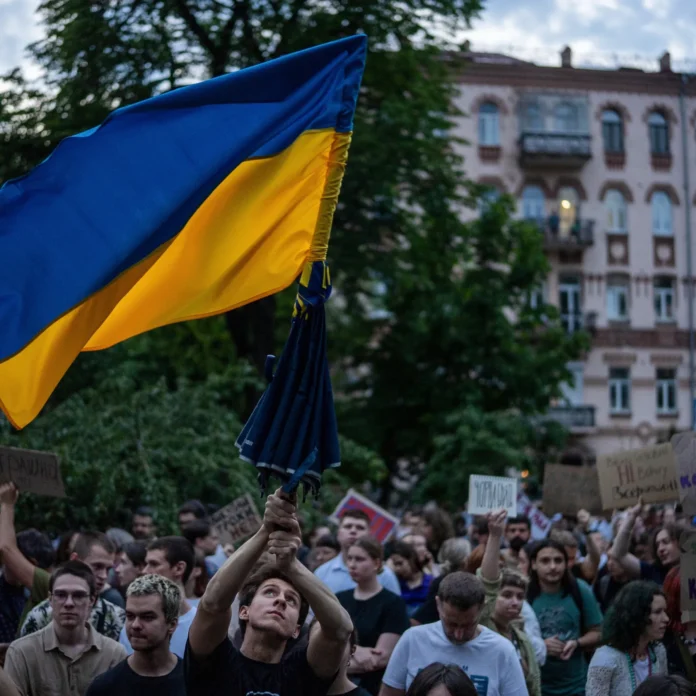President Volodymyr Zelenskyy on Thursday announced a new anti-corruption bill in a bid to calm growing public unrest and address sharp criticism from the European Union over a recent law that opponents say weakened Ukraine’s graft-fighting institutions.
The move comes just days after Parliament passed, and Zelenskyy signed, a controversial measure that critics argue stripped key anti-corruption watchdogs of their independence by expanding government oversight. Protesters gathered in Lviv on Wednesday to oppose the law, which many fear could reverse hard-won reforms and damage Ukraine’s credibility with Western partners.
In a sudden shift, Zelenskyy said in a Telegram post that he had prepared a fresh draft law that would bolster the fight against corruption while protecting the independence of oversight bodies.
“The most important thing is real tools, no Russian connections, and the independence of the [watchdogs],” he wrote.
He claimed the initial law aimed to accelerate investigations and secure more convictions, while also countering alleged “Russian influence” in Ukraine’s anti-graft efforts—though he did not provide specific evidence of such interference.
The president’s new proposal appears to be a response to mounting pressure at home and abroad. The law, approved earlier this week, sparked Ukraine’s first significant anti-government protests since the full-scale Russian invasion began in February 2022. While demonstrators have not called for Zelenskyy’s resignation, their frustration underscores concern over transparency and democratic accountability during wartime.
EU Enlargement Commissioner Marta Kos described the original law as “a serious step back,” while Transparency International’s Ukrainian branch said it undermined a cornerstone reform from the 2014 Revolution of Dignity and could erode trust with international allies.
Despite announcing the new bill, Zelenskyy did not clarify whether he plans to revoke the contested law. He also offered no specific details about the content of the new legislation, leaving questions about the scope and direction of the changes.
Just a day earlier, Zelenskyy had said he met with the heads of Ukraine’s main anti-corruption and security agencies and gave them two weeks to offer recommendations on how to revise the law. Still, fresh protests were expected Thursday evening, signaling that many Ukrainians remain unconvinced by his assurances.
The unrest comes at a precarious moment in Ukraine’s war effort. Russia’s military has intensified its push on the front lines and escalated airstrikes on Ukrainian cities. On Thursday morning, Russian aircraft dropped two powerful glide bombs on central Kharkiv, wounding at least 37 people, including a 28-day-old infant, a 10-year-old girl, and two 17-year-olds, according to regional Governor Oleh Syniehubov.

